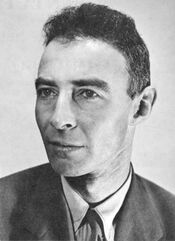Template:Are You Sure/February 18: Difference between revisions
No edit summary |
No edit summary |
||
| Line 5: | Line 5: | ||
• ... that mathematician '''[[Karl Weierstrass (nonfiction)|Karl Weierstrass]]''' formalized the definition of the [[Continuous function (nonfiction)|continuity of a function]], proved the intermediate value theorem and the Bolzano–Weierstrass theorem, and used the latter to study the properties of continuous functions on closed bounded intervals? | • ... that mathematician '''[[Karl Weierstrass (nonfiction)|Karl Weierstrass]]''' formalized the definition of the [[Continuous function (nonfiction)|continuity of a function]], proved the intermediate value theorem and the Bolzano–Weierstrass theorem, and used the latter to study the properties of continuous functions on closed bounded intervals? | ||
• ... that mathematician cryptographer, diplomat, translator, and alchemist '''[[Blaise de Vigenère (nonfiction)|Blaise de Vigenère]]''' invented an autokey cipher in 1586, but that the similar yet distinct "Vigenère cipher" was in fact first described by [[Giovan Battista Bellaso (nonfiction)|Giovan Battista Bellaso]] in his 1553 book ''La cifra del. Sig. Giovan Battista Bellaso'', being misattributed to de Vigenère in the 19th century? | • ... that mathematician cryptographer, diplomat, translator, and alchemist '''[[Blaise de Vigenère (nonfiction)|Blaise de Vigenère]]''' invented an autokey cipher in 1586, but that the similar yet distinct "Vigenère cipher" was in fact first described by '''[[Giovan Battista Bellaso (nonfiction)|Giovan Battista Bellaso]]''' in his 1553 book ''La cifra del. Sig. Giovan Battista Bellaso'', being misattributed to de Vigenère in the 19th century? | ||
Revision as of 10:41, 18 February 2020
• ... that physician, astronomer, and mathematician Thābit ibn Qurra Thabit rejected the Peripatetic and Aristotelian notions of a "natural place" for each element, and that Thābit instead proposed a theory of motion in which both the upward and downward motions are caused by weight, with the order of the universe a result of two competing attractions (jadhb): one of these being "between the sublunar and celestial elements", and the other being "between all parts of each element separately"?
• ... that mathematician Karl Weierstrass formalized the definition of the continuity of a function, proved the intermediate value theorem and the Bolzano–Weierstrass theorem, and used the latter to study the properties of continuous functions on closed bounded intervals?
• ... that mathematician cryptographer, diplomat, translator, and alchemist Blaise de Vigenère invented an autokey cipher in 1586, but that the similar yet distinct "Vigenère cipher" was in fact first described by Giovan Battista Bellaso in his 1553 book La cifra del. Sig. Giovan Battista Bellaso, being misattributed to de Vigenère in the 19th century?
